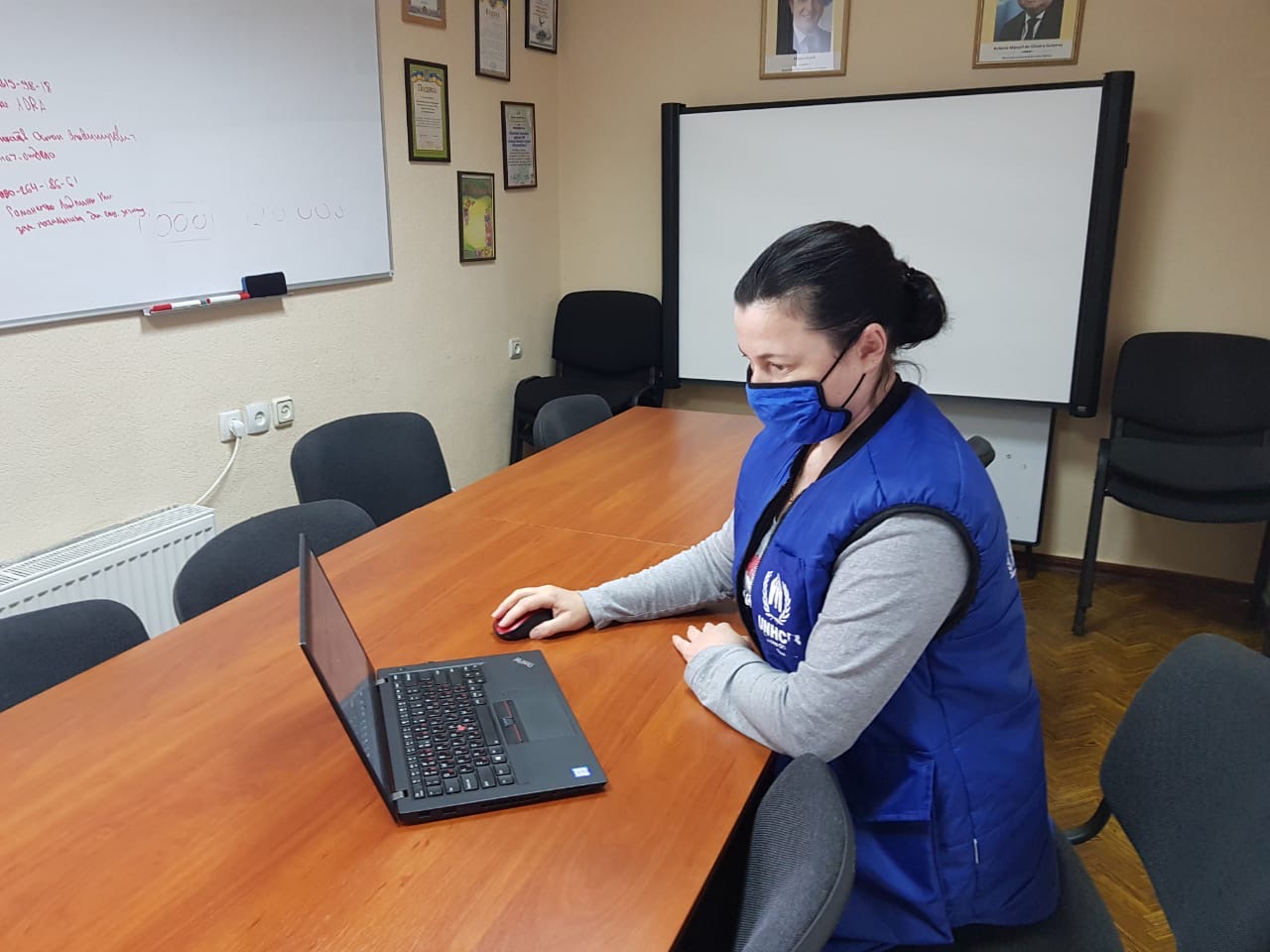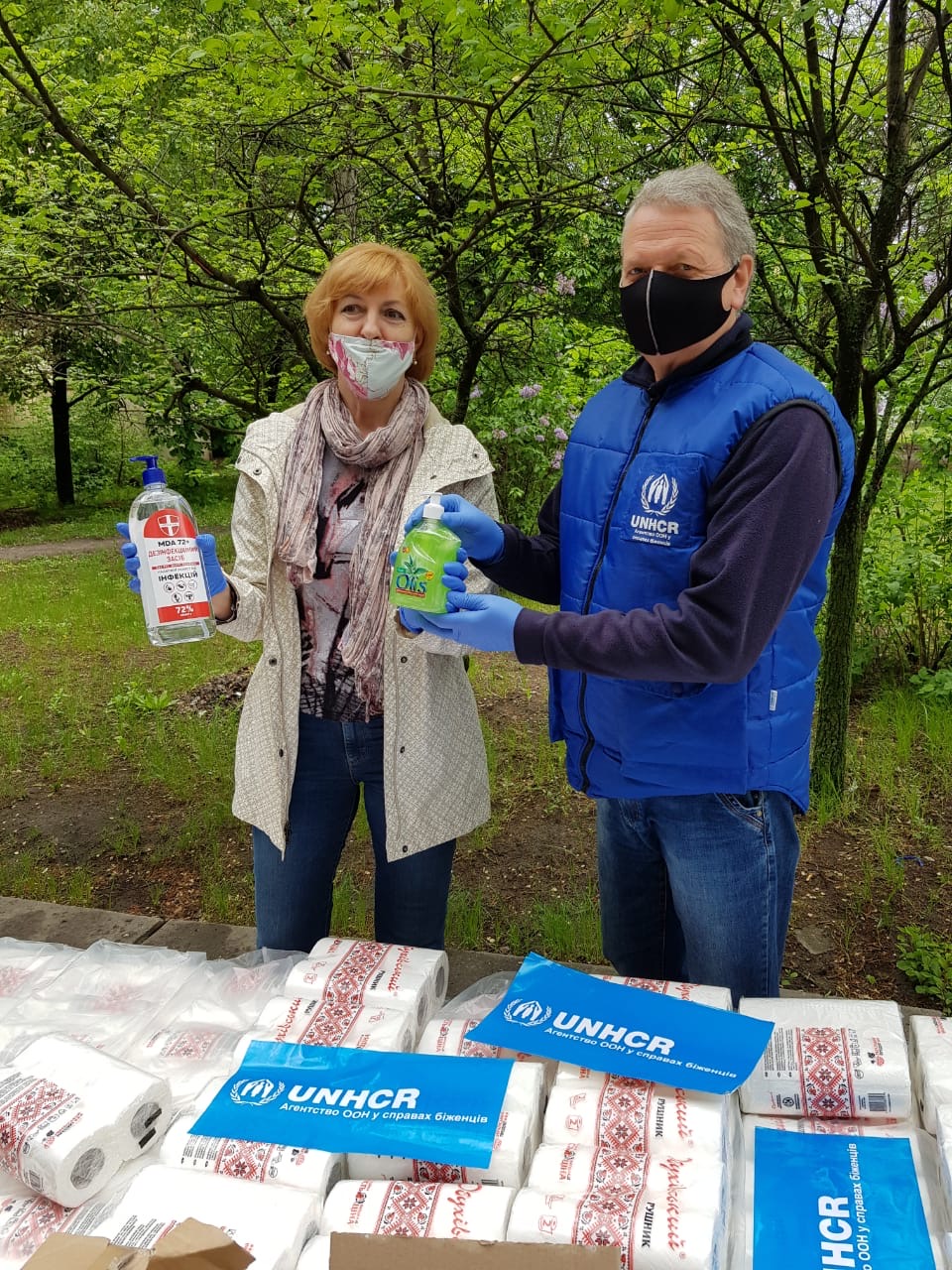How UNHCR Field Office in Sievierodonetsk in eastern Ukraine is coping with the pressure of coronavirus
Oleksandra Lytvnenko is an internally displaced person from Luhansk, who relocated six years ago because of the armed conflict in eastern Ukraine. Back then, she was working as a volunteer with UNHCR, and later applied to become a UNHCR staff member. Today, Oleksandra is leading a Field Office in Sievierodonetsk with a team of nine.
“For me, the situation with coronavirus has certain similarity with the humanitarian crisis in east Ukraine back in 2014. Then, we were helping people who lost their homes because of shelling, and today we are fighting an invisible danger,” says Oleksandra.

On 11 March, the World Health Organization (WHO) upgraded the status of the COVID-19 outbreak from epidemic to pandemic. From 16 March, the Government of Ukraine introduced restrictions aimed at mitigating the risks related to the spread of the coronavirus infection. The management of UNHCR in Ukraine decided to transfer staff members to working from home, asking only critically important staff members to remain in the offices. Heads of field offices were identified as critically important.
“During the very first days of the pandemic the main question was: how can we ensure support to people and at the same time not expose them to the danger of transmission of COVID-19,” recalls Oleksandra. “We have been regularly meeting with the local authorities, national and international organizations in order to help respond to COVID-19”.
In view of the COVID-19 pandemic, the UNHCR Sievierodonetsk team developed and implemented Quick Impact Projects (QIPs) to help boost the capacity of eighteen medical institutions providing health care services to approximately 57,241 beneficiaries. Local communities were provided with the materials and tools to make protective equipment, and they produced more than 10,000 protective face masks for medical institutions in settlements located close to the contact line. Masks, gloves, hand-sanitizers and ventilators were provided to various institutions across the region.


UNHCR procured and delivered hand-sanitizers to sixteen settlements along the contact line. Sanitizing solution was made available in vital parts of the social infrastructure regularly attended by locals, such as post offices.
To further prevent the spread of COVID-19, the team significantly reduced the number of filed visits, they relied on local staff of partner NGOs to conduct distributions and introduced high hygienic standards in its office.
“We closed our office to visitors, and we ensured that only one person is working per room in the office. We wear protective masks and gloves whenever we communicate with people. We even asked our cleaning company to temporarily suspend their services, so we do the cleaning ourselves in shifts. I do the cleaning of the office just as other team members,” says Oleksandra.
“Support between team members became very important, too.” Oleksandra continues. “One of the members of my team is over sixty years old, and in the risk group. Colleagues do the shopping for him and buy his medicines, so he doesn’t have to go to public places himself.”
“The workload is high, and it is important to keep the team spirit high as well,” says Oleksandra. “Every day, at 9:30 am, we have short online meetings to greet each other and check how everyone is. We discuss some of the key tasks for the day. This has become a great tradition which helps us to stay united no matter whether we work in the office or from home.”
According to the Public Health Center of Ukraine, as of 30 April, there were only thirty-three confirmed COVID-19 cases in the Luhansk region. The strict preventive measures, promptly introduced by the government, have been effective so far in containing the coronavirus form spreading across the region.
“I am happy that our office has contributed to contain the virus. This is the best reward for our hard work,” says Oleksandra.
UNHCR was able to scale up its COVID-19 response thanks to funding provided by the European Union’s Civil Protection and Humanitarian Aid Operations (ECHO).

This article was edited thanks to the support of an online volunteer Giulia Ferrara. Find volunteering opportunities at https://www.onlinevolunteering.org/en
Share on Facebook Share on Twitter